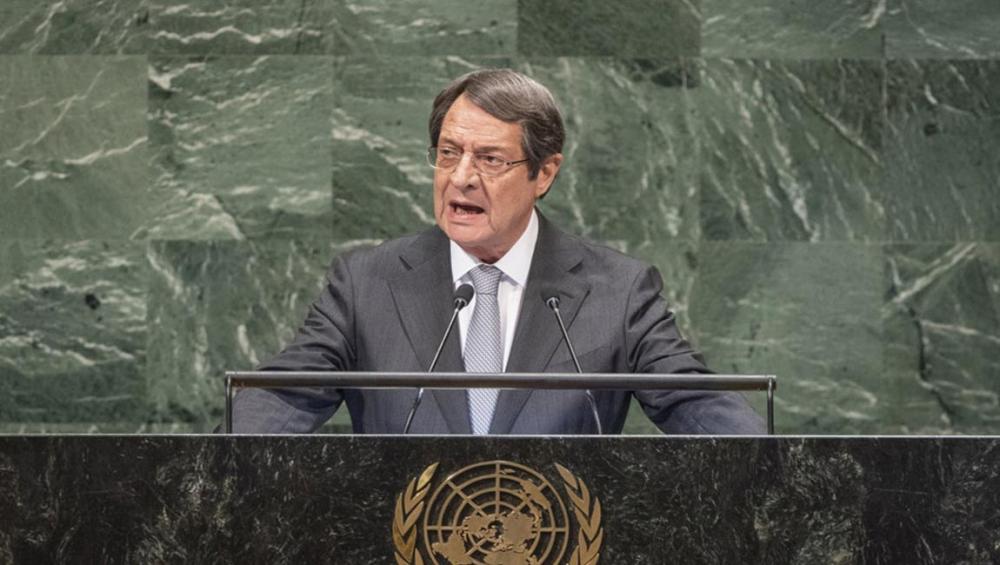Just Earth News | @JustEarthNews | 30 Sep 2018

Cia Pak
New York, “Blatant violations of international law” were foremost on the mind of Nicos Anastasiades, President of Cyprus, as he brought the issue to the United Nations General Assembly on Thursday, urging States to readjust their policies in “hope for a better future.”
“As a leader of a small country, which suffers for more than 44 years by the blatant violations of international law, let me repeat the well-known causes which explain all these unacceptable and disappointing results, registered both at the regional and global level,” he said.
The Cyprus President enumerated reasons, from expansionist interests against territorial integrity to military investments for profit, and financing terrorism to “narrow and blind economic” considerations that have rendered more than 20 million people in urgent need of assistance.
He added to the list, “inflexible policies” the prevent authorities from providing medical care and special interests that hinder the Paris Agreement, which deals with greenhouse-gas emissions mitigation, adaptation, and finance to address climate change.
Anastasiades also criticized short-term moves to lock up migrants.
“Instead of facing the root causes leading to massive migratory flows of millions of people, we contend ourselves in setting up immigration detention centres,” he stated, noting that “hunger and distress, which intensify migration flows, create demographic changes and exert huge economic and social pressures to all countries or regions affected.”
In addition to “a lack of credibility, trust and even legitimacy of our decisions,” he stated, “all [of] the above, in addition to the inability to effectively implement the resolutions of the UN, have led to unprecedented crises,” such as displacement, destruction of cultural heritage, and human and drug trafficking.
Despite diverging aspirations or conflicting interests, Anastasiades urged the world leaders to rise up “to meet our shared responsibility, reverse our policies of the political expediencies…adopt a more proactive, targeted and results-oriented approach and address the root causes that have led to this unprecedented situation.”
He called collective leadership and the primacy of multilateralism “the only way forward” to eliminate threats to peace and security.
“In a fragmented and multipolar world, we have more than ever the moral, ethical and political duty to promote the essence of human civilization, unite our strength to maintain international peace and security and establish the conditions which would bring prosperity and welfare for all,” Anastasiades maintained.
Looking closer to home, he said a viable and lasting settlement to what he referred to as “the Cyprus problem” would be to the best interest of the people of Cyprus, Greek and Turkish Cypriots, and their aspiration to live in a normal and prosperous European country, fully independent and free from any foreign dependencies.
“At the same time, I remain convinced that the solution of the Cyprus problem will undoubtedly have a very important collateral influence on achieving and maintaining a much-needed environment of stability and peace in the region,” he said.